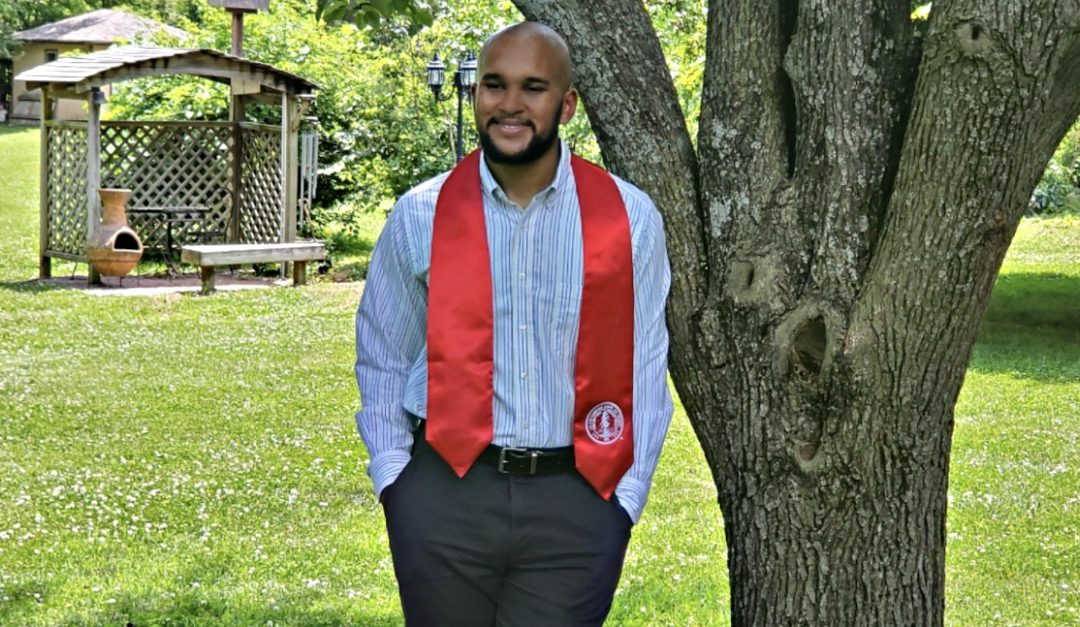After finishing in the top ten percent of Stanford University graduates this year, Remy Gordon is poised to enter the business world with the kind of potential young people dream about. As Gordon reflects on his achievements so far, and all the possibilities his future holds, he’s giving some credit to his ThinkViral internship back when he was in high school.
“It taught me so much about the power of social media, but I think even more importantly, it opened my eyes to how business works,” says Gordon. “ThinkViral offered me a great opportunity as a high school student and I’m really proud of how much I invested myself in it. It was such an immersive, enriching experience and I got far more out of it than I expected. ”
Spend a little time talking to Remy and you clearly see a bright mind full of ambition, ready to make a difference. It’s no surprise he made the cut at Stanford and then turned his college years into a powerful springboard for professional success.
After graduation, he immediately took on a robotics internship to sharpen his business skills and will soon move on to a fellowship focused on work inside a philanthropic organization of his choosing. He will then begin full-time work at Bain & Company, the management consultancy where he interned last summer. Meanwhile, Gordon’s also been accepted to Harvard Business School’s MBA program. “The world is wide open for me right now and I’m ready to explore. It’s a really exciting time in my life.”
A Bachelor of Science Degree in Science, Technology, and Society will certainly pave the way as Gordon launches his career and investigates his many options. He’s not sure yet where exactly he’ll wind up in the long run, but he acknowledges his social media internship as an important stepping stone in his journey.
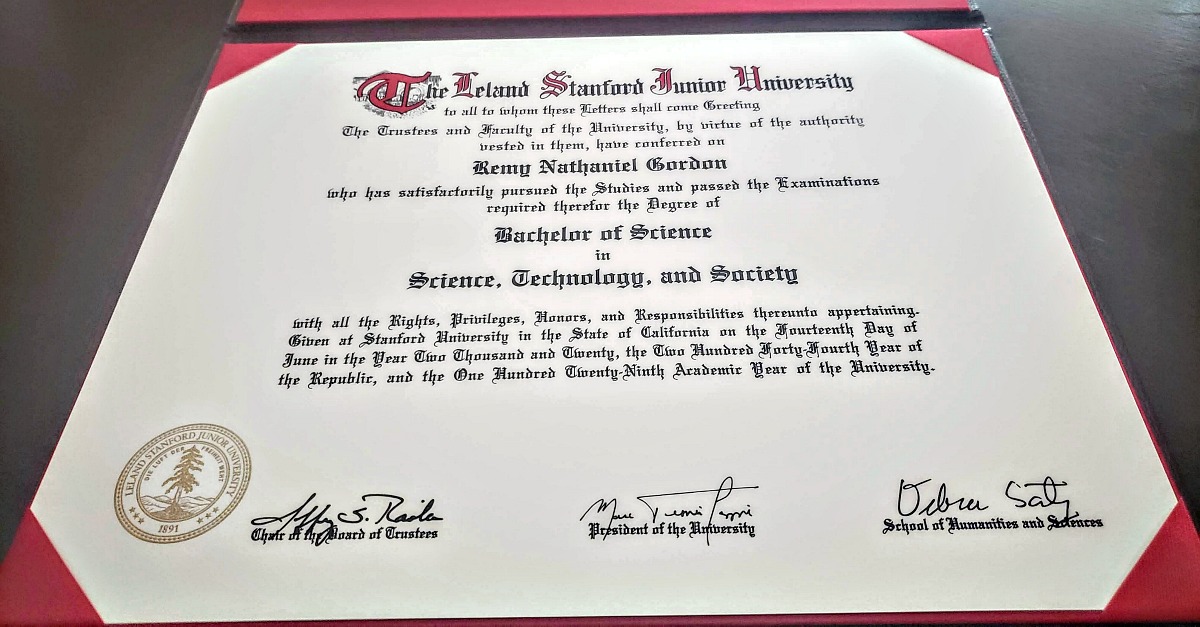
A Bold Introduction to Business
Gordon participated in two internships at ThinkViral from 2015 through 2016. When he started, just adjusting to a steady nine-to-five schedule was hard enough, but the challenge soon swelled into something much bigger. He started learning to manage social media accounts for manufacturing, distribution and tech companies, doing everything from researching, planning and content creation to constantly monitoring platforms for opportunities to share, respond and interact in real-time.
Gordon worked alongside honor student Leah Thomas as the two teenagers jumped in with both feet and set their sights on bringing legitimate value to ThinkViral clients. This was obviously not the kind of internship where you just sit around and retrieve coffee.
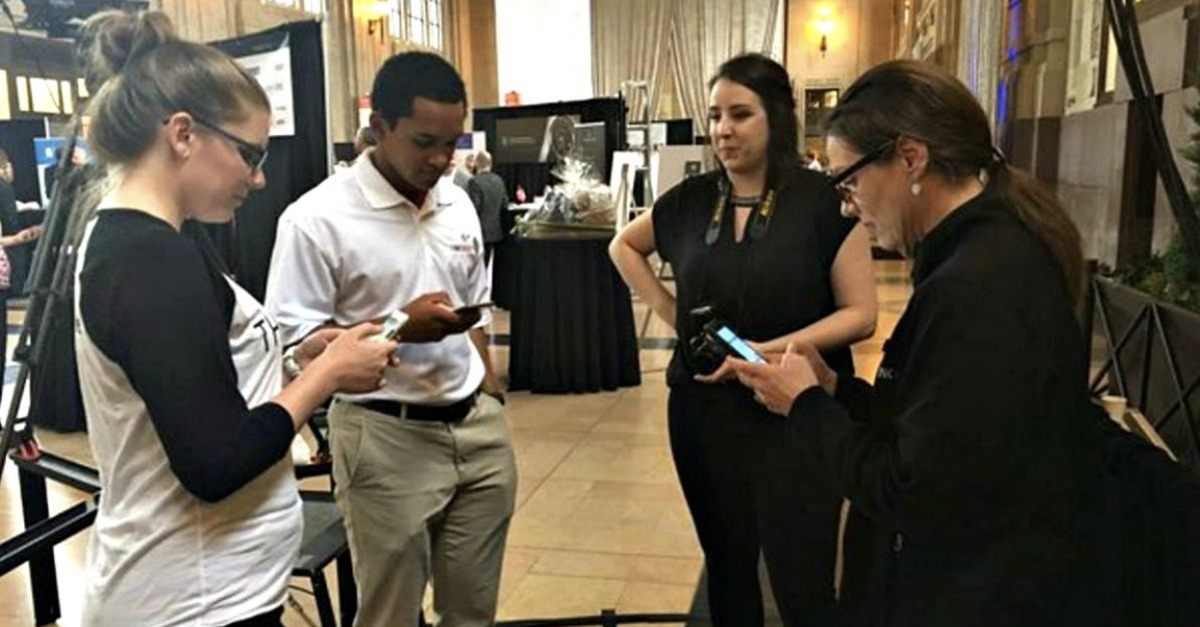
“We were put in a position where we had to think strategically and plan in advance while at the same time reacting to what was happening on social channels, “ says Gordon. “That’s a full plate for a high schooler.”
“The internship helped us connect to real people with real business problems,” adds Thomas, a recent graduate of Georgetown University. “And we had to figure out ways to help them.”
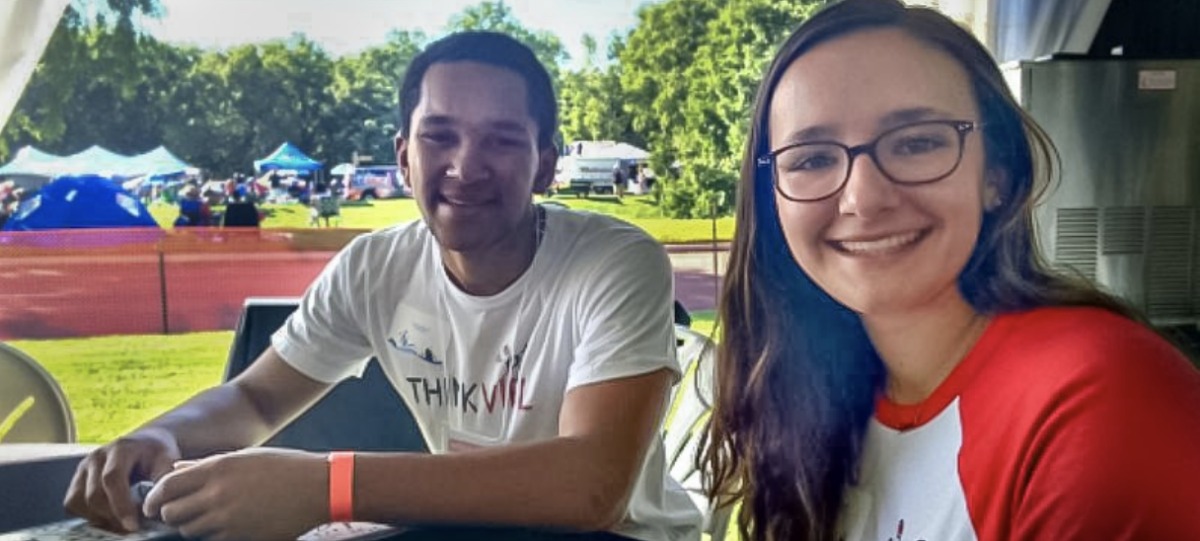
On a functional level, ThinkViral interns learned good work in business can take time. Gordon found himself taking feedback and carefully refining his work in contrast to high school processes more focused on finishing assignments and then moving on. As his skills improved, he could see the potential of social media applied for business purposes and took pride in helping clients strengthen their online presence.
“You hear Anne Cull talk a lot about ‘acting human online,’ and that’s really what it’s all about,” explains Gordon. “I enjoyed looking for ways to help businesses make human connections and I think I carried that into my offline work, too.”
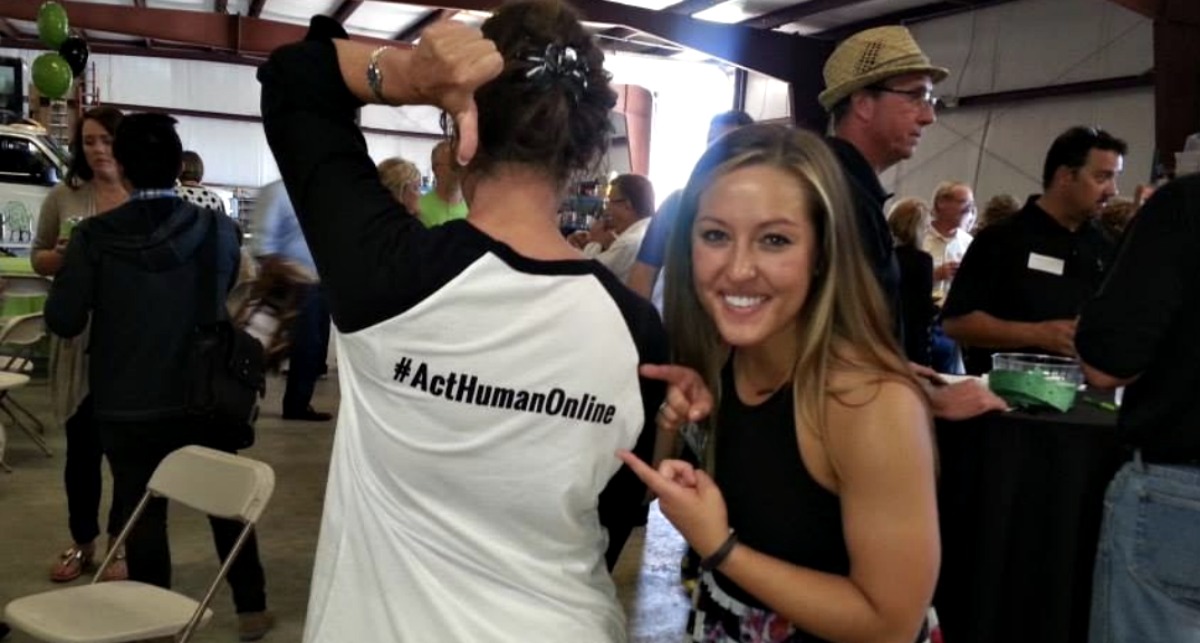
In fact, those human connections offline may have presented the internship’s biggest challenge and reward. When you’re a teenager, most of your relationships are personal. The thought of getting in a room with professionals and speaking directly to them about their business can be pretty intimidating. Gordon says he was a little shaky at first but took comfort in discovering that the movers and shakers of business are people too.
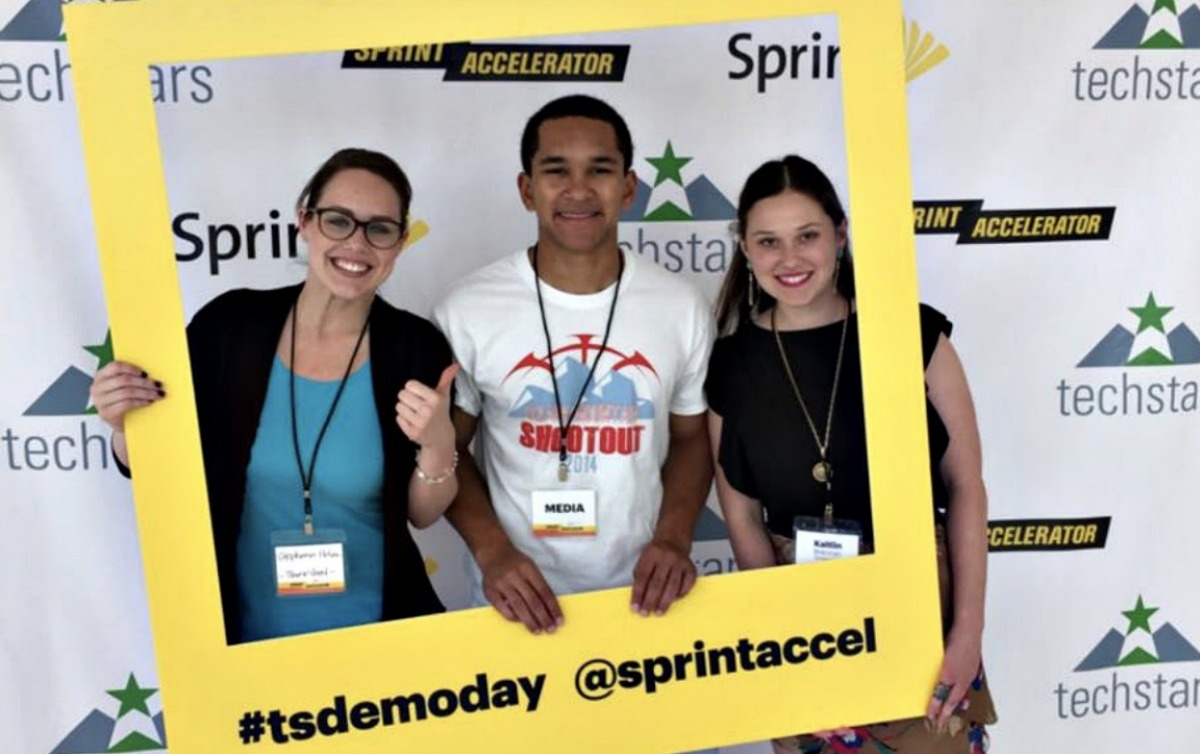
“I learned that I had to get past the titles and get to know people on a human level. I think that comes naturally for me and really helped me bond with clients. It gave me confidence to approach anyone, regardless of their position, knowing they have the same feelings, thoughts and interests that I do on some level. Understanding that human connection was a very important lesson for me.”
It was a lesson Gordon put to work to make the most of his internship. He made a priority of forging professional relationships with genuine connections. He got to know clients and listened closely during conversations to learn how to speak the language of their business and immerse himself in their world. Having industry knowledge and contributing hard skills are essential, but he learned that soft skills are almost as important.
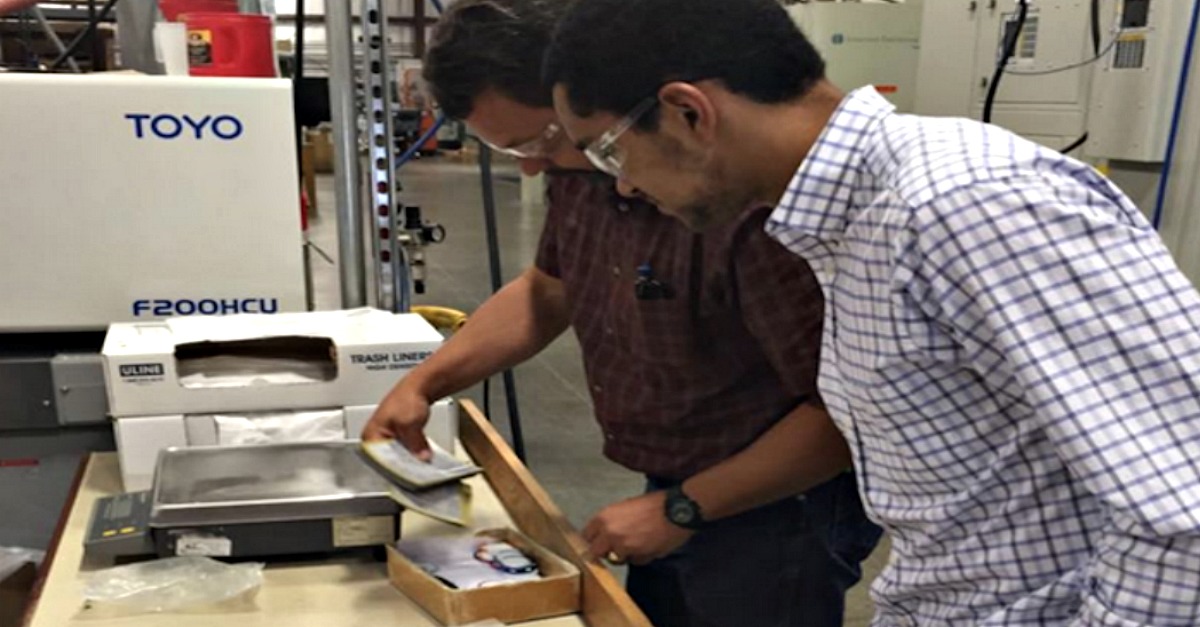
“You’ve got to put yourself in their shoes and walk in their world,” explains Gordon. “You have to find out about their needs, frustrations and worries, and show enthusiasm for helping them and get creative with solving their problems. It takes a ton of work and you have to be a sponge. You have to put in the time to get a feel for what’s going on and how you can fit in. People reward you for taking an interest. They help bring you along because they know you care.”
There’s been no shortage of executives ready to help bring Gordon along. His ThinkViral internship taught him the value of social media for business and opened his eyes to the realities of business, but in-person networking may have been the benefit that prepared him the most for a business world that runs on relationships.
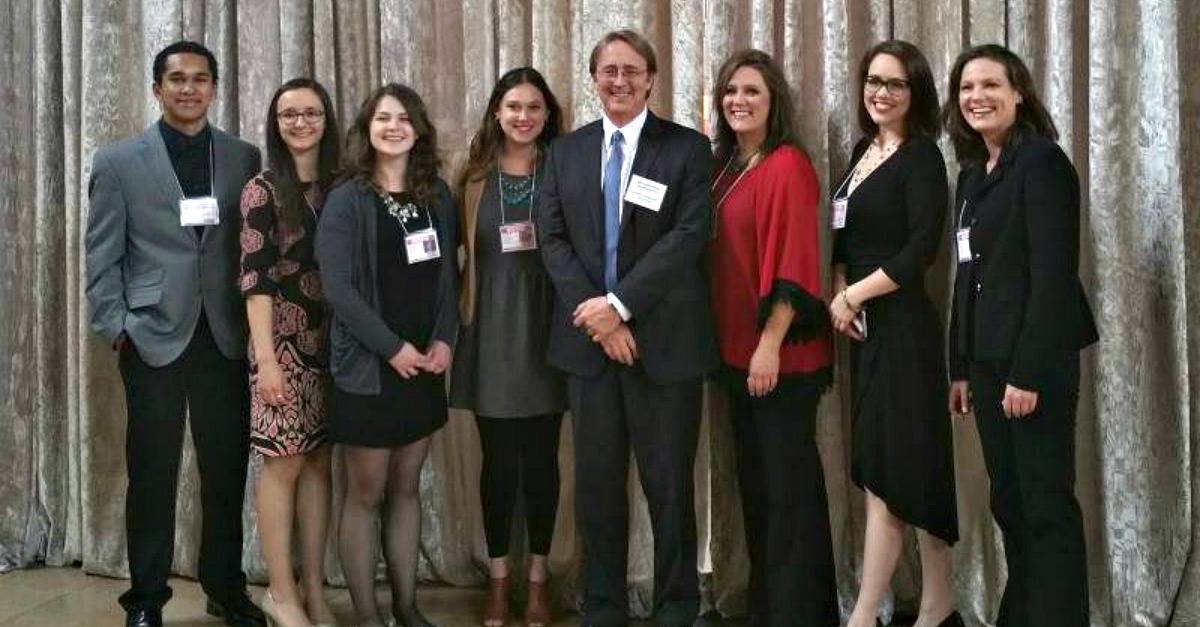
“People like Peter DeSilva, who was the President of UMB Financial Corporation at the time, took a genuine interest in me and made time to talk and get to know me. They were sincere in our interactions, showed me around their businesses, and really helped build my confidence. They recognized that teenagers like me are the future of their industries and they wanted to help with letters of recommendation for college and other forms of valuable support.”
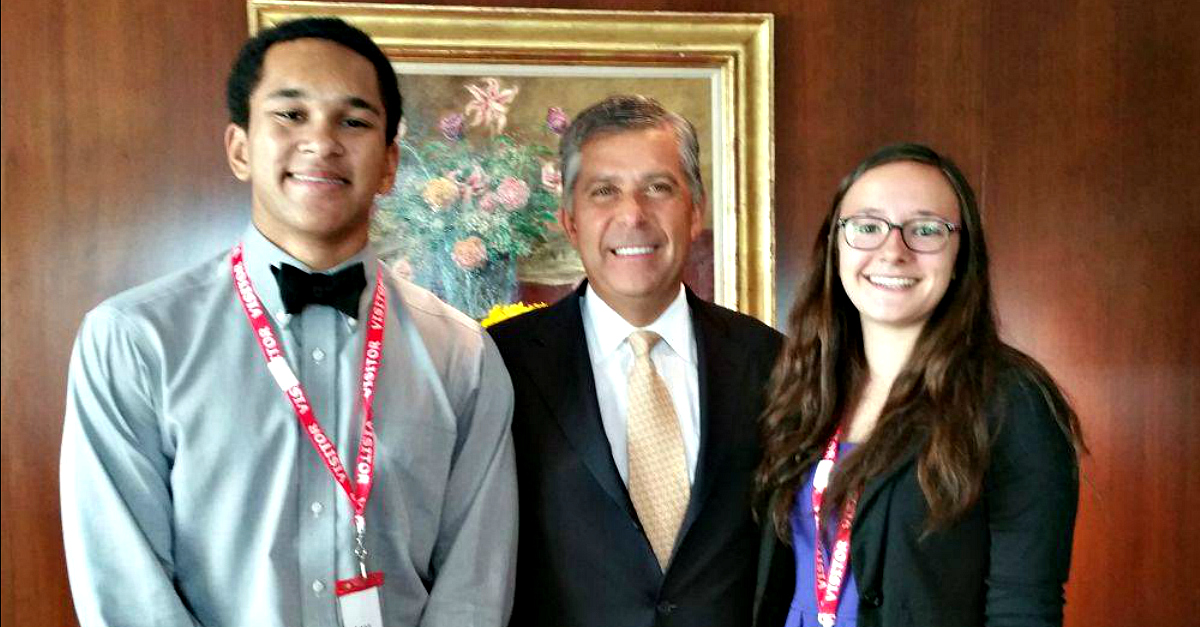
The Boost that Keeps Boosting
Above all, it was Gordon’s hard work that got him into Stanford. He devoted himself to his education and proof of that is all over his high school transcripts. But those initial sparks from his business experience working with ThinkViral gave him a little extra boost that helped him compete in a very competitive college culture.
At Stanford, he channeled his social media skills into a strategic effort that helped him run a successful campaign for the undergraduate student senate. Later, as the campaign manager for the student body president and vice president during his senior year, he deployed the same skills once again to help eke out a nine vote victory. “We worked really hard to humanize our candidates through social media and help them connect as people, and it paid off.”
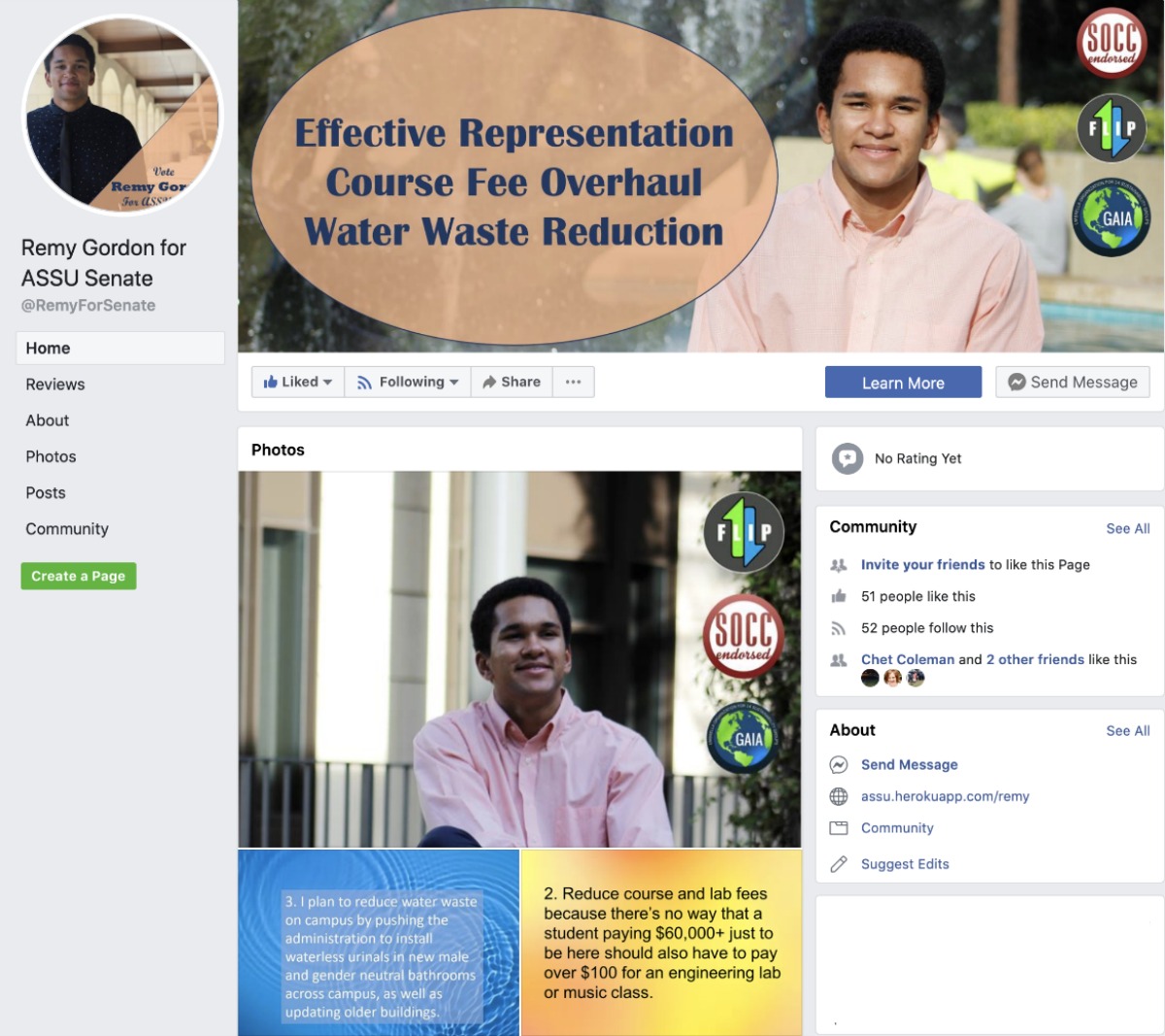
Gordon also served as the Social Media Chair for the Society of Black Scientists and Engineers at Stanford, a chapter of the National Society of Black Engineers. But don’t get the wrong idea from his track record. While Gordon knows how to work social media like a pro, it’s not his core passion. He is thankful, however, he has enough expertise to leverage social media skills to achieve greater goals.
“Social media is part of our collective world and how we all interact,” explains Gordon. “You can’t ignore it. You don’t have to devote your career to it to understand its value. But I would strongly recommend that you get comfortable enough with social media to use it to reach people and businesses that are important to you.”
Gordon’s ThinkViral internship sent him to Stanford with working knowledge of how the business world works and good instincts for what brings business minds together. He hit the ground running in a nine-to-five job as an orientation coordinator in an office setting while others around him needed time to get used to the situation.
By his sophomore year, he was an undergraduate senator working closely with administration officials to find common ground and hammer out solutions. As a junior, he managed the political campaigns for Associated Students of Stanford University executives and then served as chief of staff for the 17-member executive cabinet his senior year.
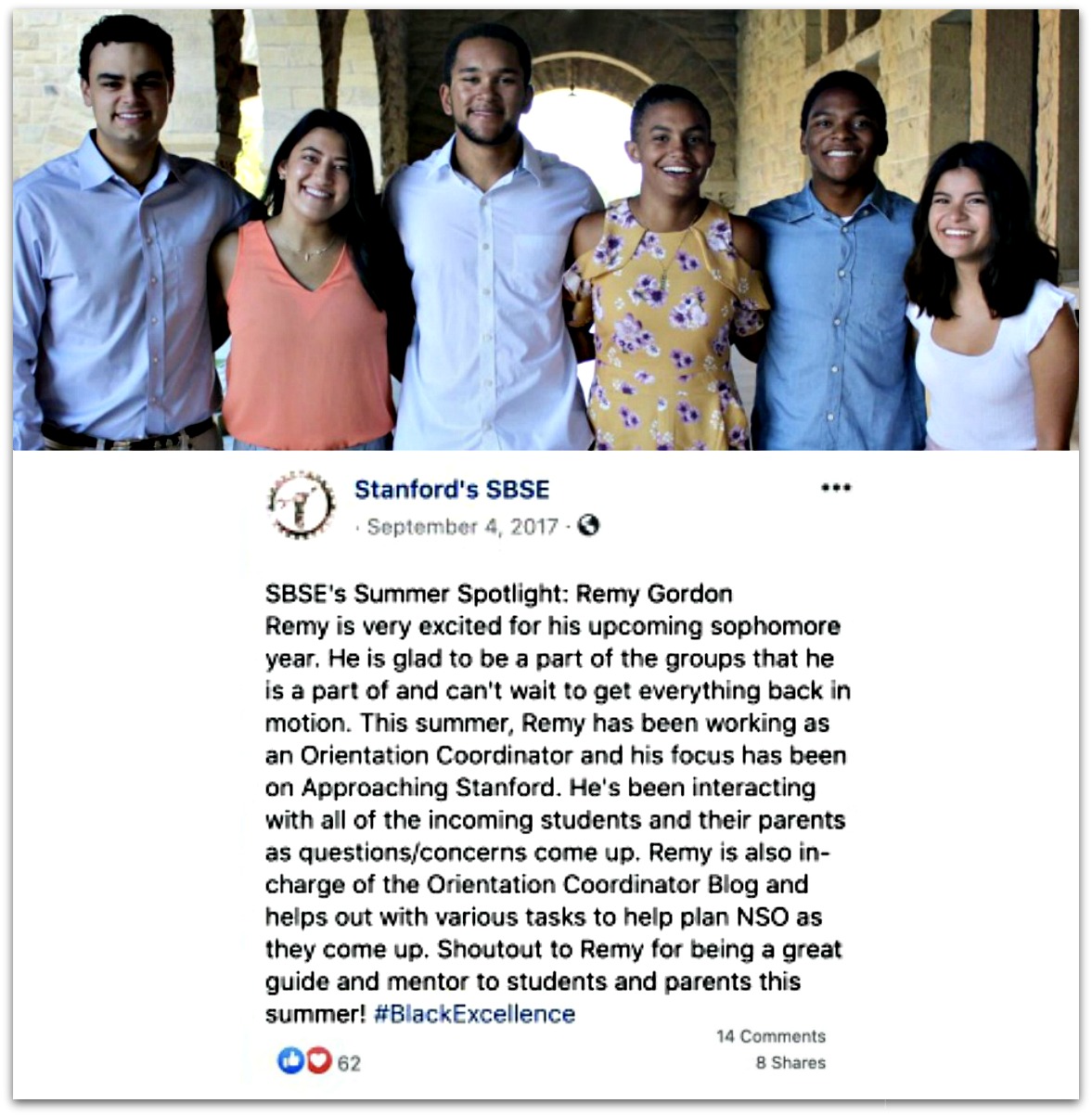
“I wasn’t too nervous or shy because collaboration was nothing new to me. I went into these endeavors leaning forward and ready to get to work and make progress. I wasn’t just there to fill a seat, I was there to get things done.”
Internships, jobs, projects, collaboration, colleagues both new and old — how do you keep track of it all? Well a resume is a good start, but if you really want to connect a growing web of organizations, affiliations and professional relationships, nothing beats Linkedin. Gordon depends on his account and encourages other young professionals to do the same.
“Social networking is about building your whole brand and connecting your whole self, not just your personal profile. Your professional profile is part of your identity and LinkedIn is just a great way to bring it all together and cultivate connections. It’s how you continue to communicate your value quickly and easily, and let your network know what matters to you.”
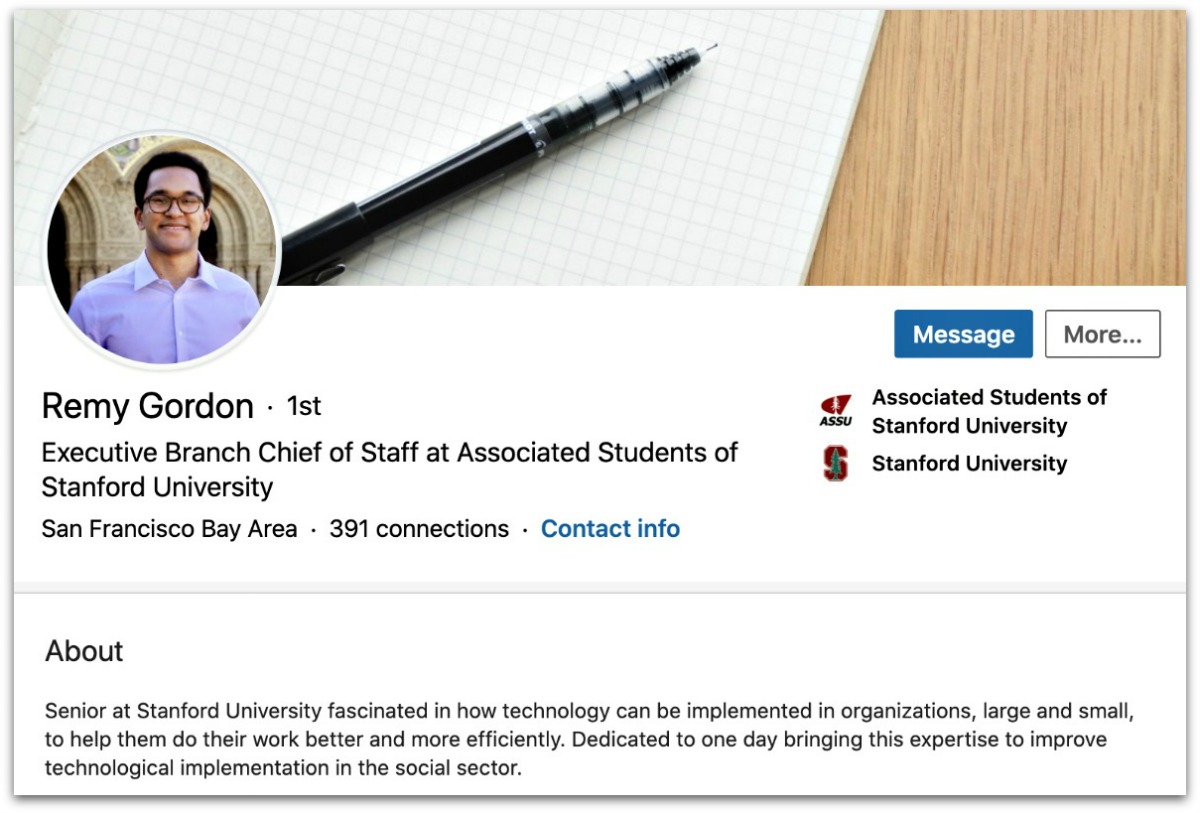
Gordon emphasizes that even if you’re not focused on a particular career track or title, your LinkedIn profile can still get results by simply communicating what you’re interested in and hoping to do in general. He says sending messages that indicate who you are as a person and where you’re at in life are more valuable than you might think.
“There have been so many studies that show people really prefer to do business with people they feel like they know and also get along with. Communicate your interests and passions because you never know who can open a door that you didn’t even know was there.”
And don’t forget the golden rule: treat others like you want to be treated. Gordon says the more you take an interest in other professionals, the more likely they are to take an interest in you. “I try to invest myself as much as possible in the lives and successes of other people I connect with on LinkedIn. I really appreciate people who behave that way, too.”
Take It From Someone Who Knows
Remy Gordon isn’t one to brag, but when you put together everything he’s achieved so far at a young age, you have to admit he knows what he’s doing. He’s quick to point out that he still has so much to learn, but what he’s learned so far offers valuable insight to others traveling some of the same roads.
“My advice to high school students just beginning to think about their professional futures is don’t hold back. Do all you can to get yourself out there and don’t fear rejection. If you seek an internship, go after something that you might sincerely be interested in. And don’t be too quick to judge. I found that people in industries that seem to do work that might appear boring are passionate about what they do and you can really feed off of that passion and learn a lot.”
What can you expect to get out of an internship? In most cases, the answer depends on what you put into it. As in life, you get what you give. Gordon says he’s experienced it first-hand.
“Dive in. You’ll be amazed at what you’ll have to show for it. I was so grateful for the ThinkViral internship and I tried to show that by proving I deserved the opportunity. People saw that I was enthusiastic, driven, and ready to help. They also saw that I am genuine and that made them even more interested in what I might have to offer. It helped me earn their trust. You’ve got to be authentic and put yourself out there if you want others to be themselves too and open up in ways that can really help you shape a smart career path.”
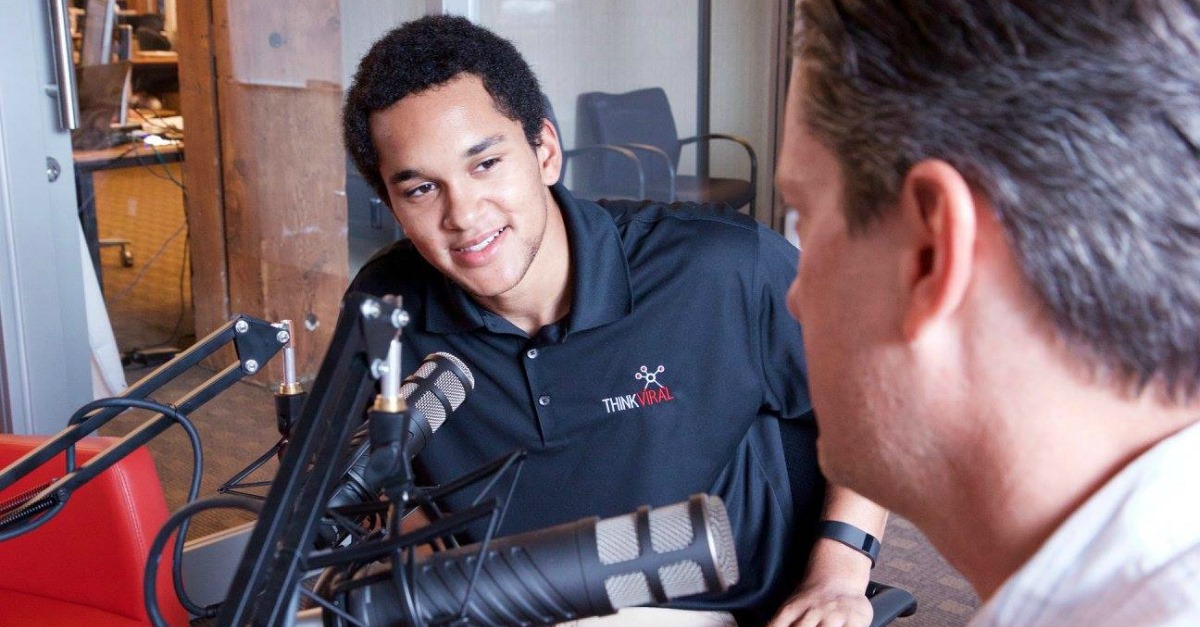
As for businesses considering whether to take on interns in social media or any other capacity, Gordon urges you to embrace it as an opportunity, not just something you feel like you should do.
“Internships are a great chance to see your world through fresh eyes because you’re entrenched in your work and exposure to different perspectives can help you work better. Plus, if you give it a little forethought, you can create a situation where your interns actually bring value to your company. Let them help you in some way. In the context of social media, they can strengthen your brand and make connections that translate into new business opportunities. Just one valuable connection might pay for the internship over and over again.”
Even after all these years of social media’s influence, many businesses are still reluctant to get off the sidelines and start ‘acting human online.’ And with political pressures boiling over and protesters filling the streets, the idea may seem even more risky.
But Gordon warns that remaining silent on social channels may hurt your competitiveness and push you further back as the rest of the business world moves forward. He offers this final piece of advice:
“Businesses don’t have to evangelize or take a position on every issue, but they can’t be silent on broad changes dominating our collective culture and directly impacting the workforce. You can’t look at something like the Black Lives Matter movement and others as only existing outside of your business. If you want to attract the best and brightest, you’re going to have to demonstrate that you support them and what matters to them. Trust me, they will go to employers who do and ignore the ones who don’t.”
Even if you just acknowledge that this is what we do, this is what we do right, and this is what we need to work on — those are some of the most powerful statements a business can make. It’s about communicating that you’re a fair and equitable organization. That’s nothing but positive. Don’t leave your people, your customers, and your industry to wonder.”
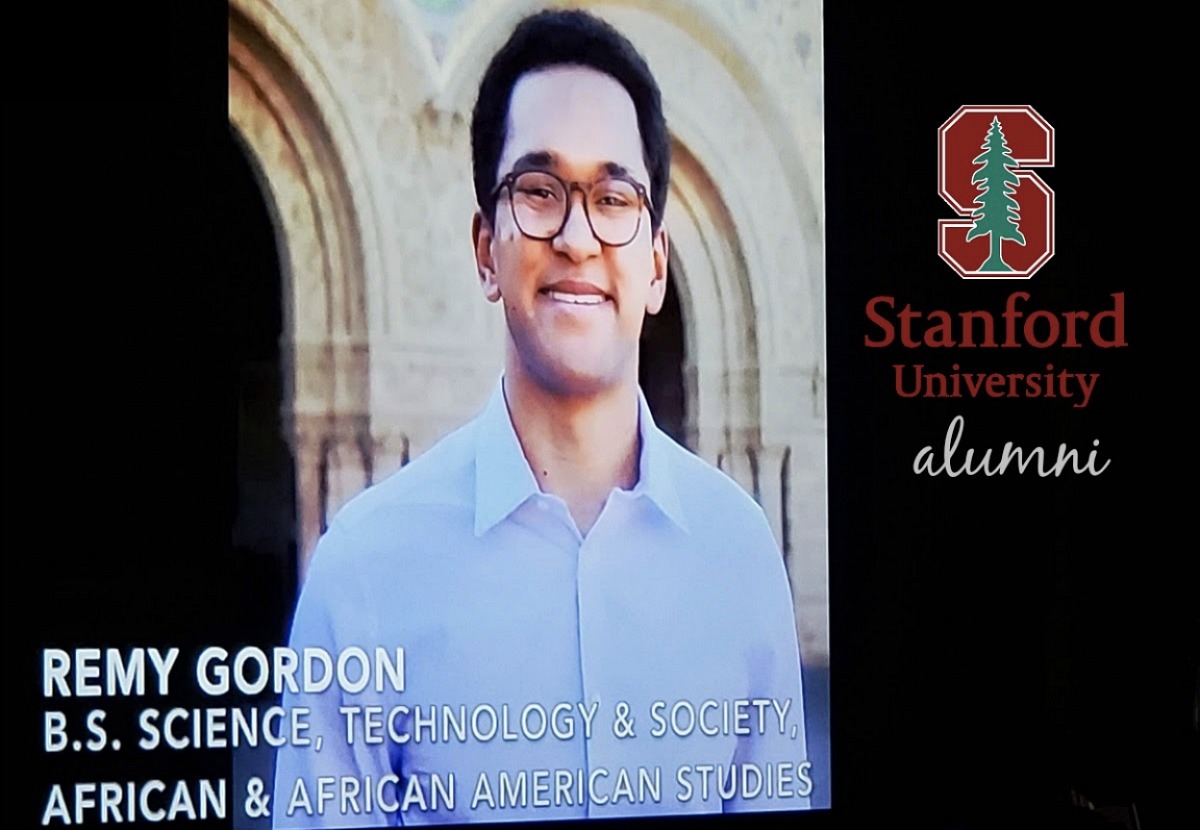
About ThinkViral
Social Media Experts Professionals
WHO We Work With…
- Associations
- Civic Groups
- Commercial Construction
- Commercial Developers
- Economic Development Agencies
- Logistics/Warehouse
- Manufacturing
- Municipalities
- Professional Services
WHAT We Sell…
- Social Media Corporate Training
- Social Media Policies and Guidelines
- Social Media Management Plans
- Outsourced Social Media Management
- Social Media for C-Suite & Decision-Makers
- Social Media Plans for Fundraising and Events
- Social Media Intelligence & Reporting
- Social Websites
- Project Showcases & PR Stories

